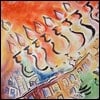For being a Jew and wanting to live like one, Reb Asher Sossonkin, a devoted Lubavitcher chassid, was sentenced to ten years’ imprisonment in a Siberian labor camp. There, he and other “political” prisoners lived, cut off from the outside world, in the harshest conditions, together with prisoners who were fearsome criminals.
One day Reb Asher was approached by another prisoner, who asked him about his observance of Shabbat, which had become somewhat of a legend in the camp. This Jew, whose name was Nachman Rozman, was born into a traditional family, but at an early age abandoned Judaism and became a staunch communist. Now he decided that he also wanted to observe Shabbat.
Reb Asher encouraged him, but with fear and trepidation, for disobedience of camp regulations was punished severely—and observing Shabbat was clearly prohibited. Rozman, however, would not be discouraged. He began to staunchly observe the Shabbat using ruses which were sometimes successful, and often not.
Once, another Jew said to him, “You can’t copy Sossonkin! Why, he doesn’t even eat non-kosher food, but you eat anything!”
When he heard this unfamiliar idea, Nachman came to Reb Asher to find out what was this “kosher” food. Reb Asher explained to him that Jews eat only animals which are designated in the Torah as kosher, and then, only when they are slaughtered in a prescribed manner. From then on, Nachman resolved to eat only kosher, too. To think that this scenario was being played out in the grim setting of a Soviet labor camp, where a scrap of meat was a coveted delicacy, is almost unbelievable, and yet it happened.
How did this totally assimilated Jew find the strength of character to maintain his beliefs? He had served in the army and attained a high rank, but nevertheless he was sentenced to fifteen years at hard labor for his crime. Now, in the camp, he resolved to return to Judaism. After a day of ceaseless labor, he would come to Reb Asher to discuss Torah and to learn how to perform mitzvahs. He longed to learn how to pray from a real prayerbook, but alas, there were none in the camp. Reb Asher transcribed the Hebrew prayers phonetically into Russian for the man, and his joy was boundless. Thereafter, he recited the prayers with great happiness and devotion every day.
Reb Asher suggested that they find some discarded sardine cans...and try to construct some kind of menorah...The friendship between the two men was a true blessing, giving each of them someone with whom to share their pain, and even to find a bit of joy in observing Torah together.
When Chanukah approached, Reb Asher taught his friend the story of the festival. Reb Asher suggested that they find some discarded sardine cans in the kitchen and try to construct some kind of menorah from them, but his friend wouldn’t hear of it. “How can we celebrate such a great festival using old cans? I have a friend who is a tinsmith, and for a few rubles, I’m sure he’ll make us a Chanukah menorah!” Reb Asher was uneasy lest their plan become known, but seeing his friend’s enthusiasm, he didn’t have the heart to discourage him.
When Chanukah arrived, the shining tin menorah was completed. They set it up in a small room adjacent to their barracks and lit it each night, reciting the blessings in front of Jews and gentiles alike. All seemed to bask in its light and take courage from the Chanukah story, which Reb Asher would tell every night.
But, unfortunately, every group has a troublemaker, and the peace of the Chanukah lights wasn’t to last. On the fifth night, as they were about to light the menorah, a man in a warden’s uniform walked into the room to take roll call. This was a departure from the usual schedule, for ordinarily after ten at night the prisoners were free to do as they wished. For some reason, on this night, they had to line up and be counted.
The prisoners were shocked . . .As the names were being called out, one of the prisoners whispered to Reb Asher that he had been informed on, and the roll call was just a pretense to arrest him. The rule against practicing religion in the camp was matched by an equally severe prohibition against lighting a fire anywhere in the camp buildings. All the buildings were constructed of wood, and it was feared that they could easily go up in flames.
“While he’s reading the roll, run and throw the candles in the snow. Then you can say you don’t know anything about it,” suggested the man to Reb Asher. But Reb Asher could not bear to do that to the holy lights which he had worked so hard to obtain, and which he had lit with such sacrifice these five nights!
The roll call seemed to go on interminably. When the warden came to Reb Asher’s name, he paused, and stared at the lights in the menorah. Then he called out, “P’yat?” (Five?)
“P’yat!” Reb Asher replied in a loud voice. The warden then continued calling out the rest of the names as if nothing unusual had happened.
The prisoners were shocked. Not only had Reb Asher lit a prohibited fire, but to compound the crime, it was a “religious” fire. No one could conceive how two obviously Jewish men had lit a menorah for five nights of Chanukah, and now, when they were discovered, nothing happened! This was truly a Chanukah miracle!
Reb Asher never understood what happened that night. Who was that warden? Why had he mentioned the number of candles? Was he a fellow Jew who was drawn to the sight of a menorah? Was he Elijah the prophet? The Chanukah miracle remained a mystery to the end of Reb Asher’s life. May his memory be blessed.
Adapted from Kfar Chabad Magazine, L’Chaim #498, and Sichat HaShavua.
Copyright 2003 by KabbalaOnline.org, a project of Ascent of Safed (//ascentofsafed.com). All rights reserved, including the right to reproduce this work or portions thereof, in any form, unless with permission, in writing, from Kabbalah Online.







Join the Discussion